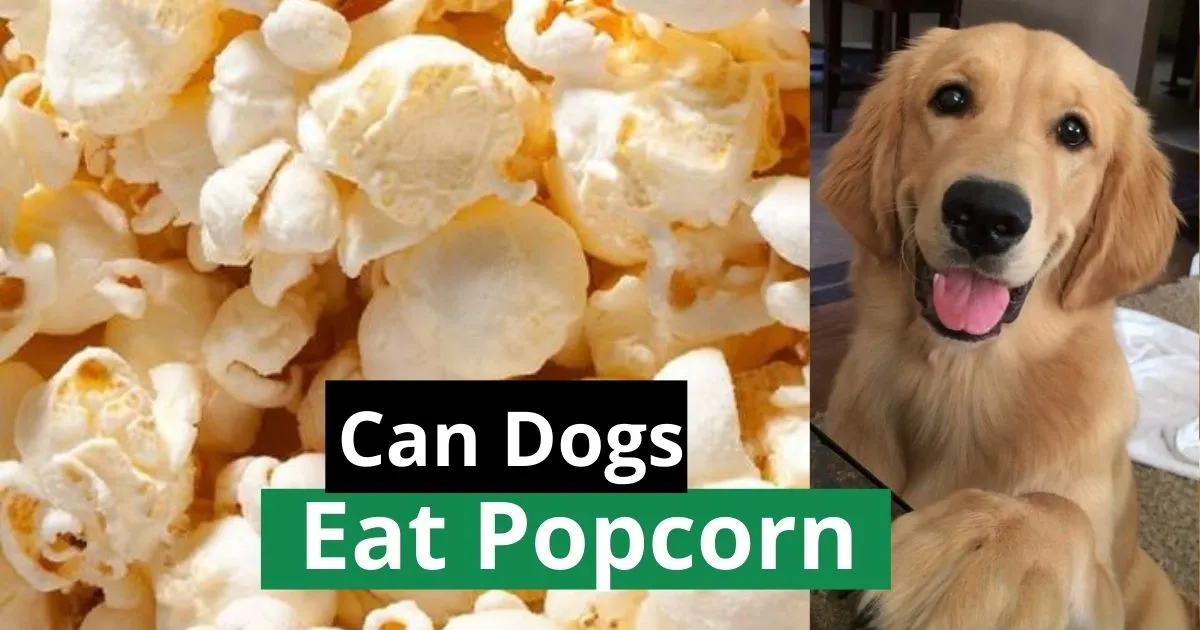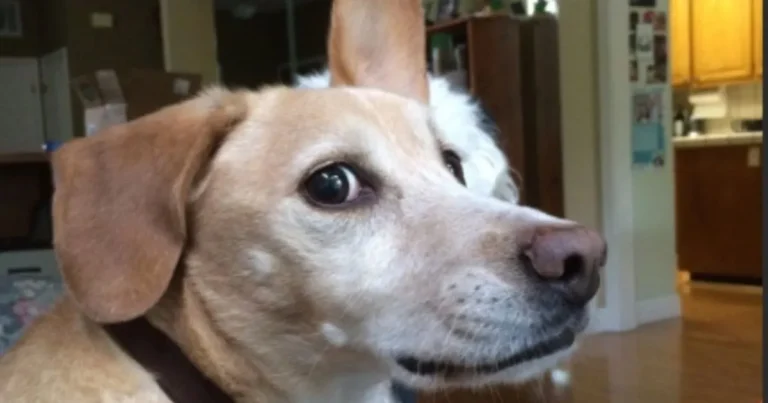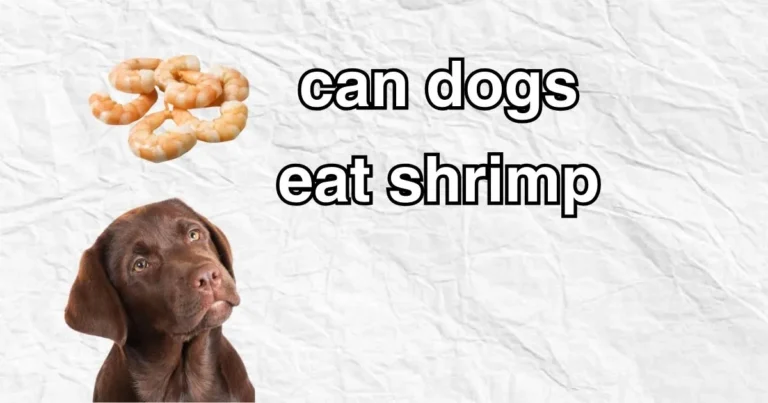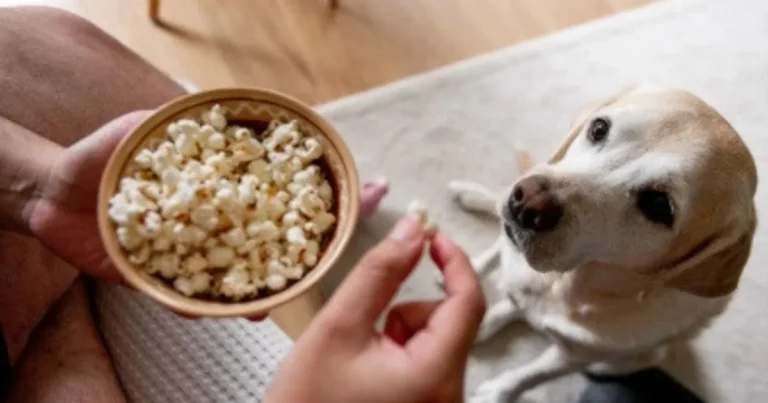Can Dogs Eat Popcorn? Safe Serving Tips & Warnings
Table of Contents
Can Dogs Eat Popcorn?
Every movie night, my furry friend’s eyes followed each kernel to my mouth. Many pet owners wonder if dogs can eat popcorn. They want to share a simple snack with their loyal companions.
Whether dogs can eat popcorn isn’t simple. There are guidelines to follow. Plain, air-popped popcorn is okay in small amounts. But, there are risks that pet owners need to know.
Feeding popcorn to your dog needs careful thought. Not all popcorn is safe for dogs. This guide will help you share this snack safely with your dog.
Before giving popcorn to your dog, it’s important to know the basics. Learning what’s safe and what’s not can prevent vet visits. It’s all about keeping your dog healthy and happy.
Understanding Popcorn Safety for Dogs
When thinking about what human food dogs can eat, popcorn needs careful thought. Not all popcorn is safe for dogs. Knowing the differences can help you decide if it’s okay to share.
Dogs can have popcorn if it’s prepared right. But, owners must be very careful about what’s in it. The goal is to keep it simple and safe.
Types of Safe and Unsafe Popcorn
- Safe Popcorn Options:
- Plain, air-popped popcorn
- Unseasoned kernels
- Popcorn without salt or butter
- Unsafe Popcorn Varieties:
- Microwave popcorn with chemical additives
- Caramel or kettle corn
- Butter-flavored popcorn
- Popcorn with excessive salt
Plain Air-Popped vs. Flavored Varieties
Plain, air-popped popcorn is the safest for dogs. Flavored popcorn can have bad stuff like artificial butter or too much salt. These can upset your dog’s stomach or even be dangerous.
Microwave Popcorn Concerns
Microwave popcorn is not good for dogs. It often has chemicals like diacetyl that can harm your dog’s breathing. Always choose plain, natural popcorn when giving it to your dog.
Remember: Moderation is crucial when introducing any human food to your dog’s diet.
Health Benefits of Plain Popcorn for Dogs
Plain popcorn can be a healthy treat for dogs. It’s not a full meal, but it can add some good stuff to their diet. Just make sure to give it in small amounts.
Nutritional Value and Vitamins
Plain popcorn has important nutrients for dogs. It has vitamins that help keep them healthy:
- Riboflavin (Vitamin B2) supports metabolic functions
- Thiamine (Vitamin B1) helps maintain healthy energy levels
- Minerals like magnesium and zinc for immune support
Fiber Content Benefits
Fiber is key for a dog’s health. Air-popped popcorn is a low-calorie fiber source. A few kernels can help with regular bowel movements and a healthy gut.
Energy-Boosting Properties
Popcorn’s complex carbs give dogs a quick energy boost. It’s a light, crunchy snack that keeps their energy up when given in small amounts.
Remember: Plain, unsalted, and unbuttered popcorn is key to ensuring your dog receives potential nutritional benefits without harmful additives.
Potential Risks and Dangers
When thinking about popcorn and dogs, pet owners need to know the risks. Can my dog have popcorn safely? It depends on how it’s prepared and in what amount.
Unpopped kernels are a big choking hazard for dogs. These hard kernels can hurt teeth or get stuck in the throat. They can also cause injuries in the digestive tract if swallowed whole.
- Sodium poisoning from salted popcorn
- Potential digestive system complications
- Risk of pancreatitis from buttered varieties
- Potential allergic reactions
Buttered or flavored popcorn adds more dangers. High salt content can cause sodium ion poisoning. This leads to symptoms like vomiting, diarrhea, and seizures. Too much butter can cause pancreatitis in dogs.
Artificial flavors and additives are also a worry. Chemical seasonings can cause allergic reactions or upset stomachs. Some microwave popcorn has toxic ingredients for dogs. So, plain air-popped popcorn is the safest choice.
Pet owners should always talk to vets before giving new foods to their dogs. It’s important to be careful and not overdo it when sharing popcorn with your furry friend.
Can Dog Eat Popcorn: Guidelines and Portions
Popcorn can be a tricky treat for dogs. It’s important for pet owners to know the right serving sizes. This keeps their dogs healthy and happy.
Popcorn can be a fun treat for dogs if given in the right way. It’s all about moderation and careful preparation. This ensures your dog stays safe while enjoying this snack.
Serving Sizes Based on Dog Weight
Your dog’s size is key in figuring out how much popcorn they can have. Here’s a guide to help you serve popcorn safely:
- Extra-small dogs (2-10 lbs): 1-2 pieces
- Small dogs (10-25 lbs): 3-5 pieces
- Medium dogs (25-50 lbs): 5-8 pieces
- Large dogs (50-90 lbs): 8-12 pieces
- Extra-large dogs (90+ lbs): Up to 15 pieces
Frequency of Treats
Here are some guidelines for giving popcorn as a treat:
| Dog Size | Weekly Frequency | Portion Limit |
|---|---|---|
| Extra-Small | 1-2 times | 2-3 pieces |
| Small | 2-3 times | 5-6 pieces |
| Medium | 3-4 times | 7-10 pieces |
| Large | 3-4 times | 10-15 pieces |
| Extra-Large | 4-5 times | 15-20 pieces |
Important: Popcorn should never exceed 10% of your dog’s daily calorie intake. Always check with your vet before adding new treats to your dog’s diet.
“Moderation is the key to safely sharing popcorn with your canine companion.” – Veterinary Nutrition Experts
Signs of Popcorn-Related Problems in Dogs
Introducing popcorn to your dog’s diet needs careful watching. Some dogs might face digestive issues after eating it. It’s important to monitor their health closely.
Knowing the warning signs is crucial. These signs can show if your dog is not okay. Look out for these symptoms:
- Persistent vomiting
- Unexpected diarrhea
- Visible abdominal discomfort
- Sudden lethargy
- Dramatic changes in appetite
Vets say to watch your dog’s reaction to popcorn. Some dogs’ stomachs are more sensitive than others.
| Symptom | Potential Severity | Recommended Action |
|---|---|---|
| Occasional Vomiting | Low | Monitor closely |
| Continuous Diarrhea | High | Contact veterinarian |
| Extended Lethargy | Medium | Seek professional advice |
Quick note: If symptoms persist or worsen, always consult your veterinarian immediately. Each dog responds differently to new foods in their diet.
Knowing your dog’s tolerance to popcorn is vital. Not all dogs react the same way. So, it’s important to observe them carefully.
Safe Preparation Methods for Dog-Friendly Popcorn
Preparing popcorn for dogs needs careful attention. Popcorn can be a safe snack for dogs if made right. This ensures your pet enjoys a healthy treat without risks.
To make safe snacks for dogs, you must know the right preparation. Let’s look at how to make popcorn that’s tasty and safe for dogs.
Step-by-Step Preparation Guide
- Select plain, organic popcorn kernels without additives
- Use an air popper to avoid extra oils
- Make sure no seasoning or salt is added to the popcorn
- Let popcorn cool completely before serving
- Break larger pieces into small, easy-to-eat bits for your dog
Storage Tips for Dog-Friendly Popcorn
Storing popcorn properly is key to keeping it fresh and safe for your pet. Follow these tips to keep your dog’s snack fresh:
| Storage Method | Duration | Best Practices |
|---|---|---|
| Airtight Container | Up to 1 week | Store in a cool, dry place |
| Refrigeration | Up to 2 weeks | Use a sealed container |
| Freezing | Up to 1 month | Use a freezer-safe bag |
Remember to give popcorn in small amounts and not too often. Safe snacks for dogs should add to their diet, not replace it. Always talk to your vet before adding new treats to your dog’s diet.
What to Avoid When Feeding Popcorn to Dogs
When thinking about what human food dogs can eat, popcorn needs extra care. Not all popcorn is safe for dogs. Some toppings and how it’s made can make it dangerous.
Dog owners should know the risks of popcorn. Some types can harm your dog’s health.
- Avoid popcorn with added seasonings
- Steer clear of butter-coated kernels
- Remove all salt and cheese toppings
- Watch out for artificial flavors
Unpopped kernels are a big risk. They can hurt your dog’s teeth or block their airway. Popcorn bags can also cause blockages if your dog eats them.
| Dangerous Popcorn Ingredients | Potential Risks |
|---|---|
| Butter | Digestive issues, pancreatitis |
| Salt | Sodium toxicity, dehydration |
| Caramel | Sugar overload, weight gain |
| Artificial Flavors | Potential toxic reactions |
When sharing snacks with dogs, safety comes first. Always talk to your vet before giving them new foods.
Alternative Healthy Snacks for Dogs
Looking for safe snacks for dogs is more than just popcorn. You can give your dog many healthy treats that are good for them. Knowing which snacks are good can help you choose better for your pet.
Vets suggest many tasty and healthy snacks for dogs. These snacks not only make your pet happy but also give them important nutrients.
Vet-Approved Treat Options
- Fresh Vegetables:
- Carrot sticks – Low-calorie, crunchy snack
- Green beans – High in fiber and nutrients
- Cucumber slices – Hydrating and low-calorie
- Fruit Treats:
- Apple slices (without seeds)
- Blueberries – Packed with antioxidants
- Watermelon (seedless)
Commercial Popcorn-Flavored Dog Treats
If your dog likes unique flavors, there are many commercial treats. They offer popcorn tastes but are still healthy.
| Brand | Treat Type | Key Benefits |
|---|---|---|
| Purina Beggin’ Strips | Bacon-flavored Treats | High protein, grain-free options |
| Blue Buffalo Biscuits | Crunchy Treats | Natural ingredients, multiple flavors |
| Wellness Core | Grain-Free Snacks | Nutrient-dense, limited ingredients |
Start with new snacks slowly and in small amounts. Always talk to your vet about what’s best for your dog.
Conclusion
Figuring out if dogs can eat popcorn is important. Air-popped popcorn can be a low-calorie snack for them. But, it’s crucial to remember that too much can be harmful.
When thinking about if dogs can eat popcorn, their health should always come first. The safest choice is plain kernels without any added extras. Popcorn should never be a main part of their diet. But, a little bit now and then can be a nice treat.
Your vet is the best person to ask about what’s good for your dog. Every dog is different, so getting advice from a vet is key. Always watch how your dog reacts to new foods and look out for signs of allergies or upset stomachs.
By following these tips, you can share popcorn with your dog safely. Being a responsible pet owner means knowing the risks and making smart choices about what you feed them.






